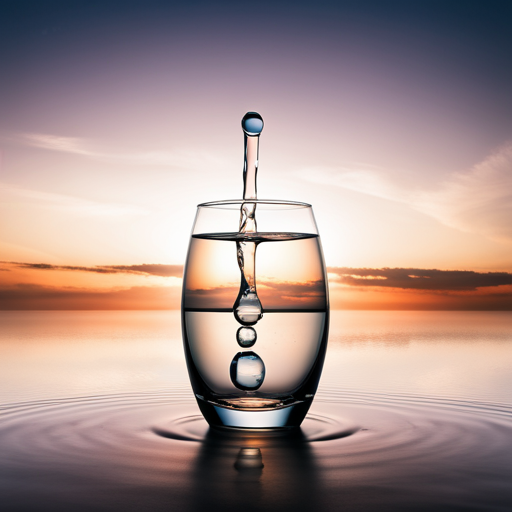Are you concerned about the water you drink and its impact on your health? You’re not alone. Many people are becoming increasingly aware of the importance of staying hydrated, but they may not know which type of water is best for them.
The debate between low mineral water and mineral water has been ongoing for years, and it can be difficult to know which option is the right choice. In this article, we’ll explore the benefits and risks of low mineral water, as well as the importance of balanced water intake. By the end of this article, you’ll have a better understanding of the truth about low mineral water and how it can benefit your health.
It’s no secret that water is essential for our daily lives, but did you know that the type of water you drink can have a significant impact on your health?
Low mineral water has become increasingly popular in recent years, but there’s still a lot of confusion about its benefits and potential drawbacks. That’s why we’re here to help you unlock the truth about low mineral water.
We’ll delve into the differences between low mineral water and mineral water, the potential risks of relying solely on low mineral water, and the importance of balanced water intake. So, whether you’re a health-conscious individual or just someone looking to stay hydrated, keep reading to learn more about low mineral water and its impact on your health.
Key Takeaways
– Low mineral water contains fewer minerals and salts than regular mineral water and can be beneficial for individuals with specific health concerns or dietary restrictions.
– Prolonged consumption of low mineral water without a balanced diet may lead to mineral deficiencies, so varied intake of essential minerals from different sources in your diet is vital for maintaining optimal health.
– Mineral water naturally contains minerals such as calcium, magnesium, potassium, and sodium, which are essential for bone health, heart health, and nervous system functioning.
– The best type of water for you depends on your individual needs and preferences, so it’s always a good idea to consult a healthcare provider before making significant changes to your diet or hydration habits.
Benefits and Risks
If you’re considering drinking low mineral water, it’s important to weigh the benefits and risks for your individual health and dietary needs.
Low mineral water can be beneficial for individuals with specific health concerns or dietary restrictions, especially if they need to limit their intake of certain minerals or salts. For example, low mineral water may be a good choice for those on a low-sodium diet or with certain health conditions, such as kidney disease, that require them to limit their intake of certain minerals.
However, prolonged consumption of low mineral water without a balanced diet may lead to mineral deficiencies. This is because low mineral water contains fewer minerals and salts than regular mineral water, which are essential for bone health, heart health, and nervous system functioning.
Therefore, it’s important to ensure that low mineral water isn’t the only source of essential minerals in your diet, and that you have a varied intake of essential minerals from different sources to maintain optimal health.
Sources and Types
When looking for sources of hydration, you may want to consider the different types of water available, including those sourced from underground reserves, springs, and specific purification processes.
Low mineral water can come from any of these sources, but it’s important to note that the mineral content is intentionally reduced through various purification processes. On the other hand, mineral water is also sourced from these same locations, but it naturally contains minerals like calcium, magnesium, and potassium.
Purification processes can include distillation, reverse osmosis, and deionization, which all remove minerals and impurities from the water. This results in low mineral water, which can be beneficial for those with certain health concerns or dietary restrictions.
However, it’s important to note that low mineral water shouldn’t be the only source of essential minerals in your diet, as prolonged consumption without a balanced diet may lead to mineral deficiencies.
Underground reserves are also a common source of both low mineral and mineral water, depending on the treatment process used.
Importance of Balanced Intake
Maintaining a balanced intake of essential minerals is crucial for your overall health and well-being. You can achieve this by incorporating a variety of sources in your diet. While low mineral water can be a good choice for those with specific health concerns or dietary restrictions, it shouldn’t be relied on as the primary source of hydration. Prolonged consumption without a balanced diet may lead to mineral deficiencies, which can have a significant impact on your health.
The role of balanced mineral intake goes beyond hydration. Essential minerals, such as calcium, magnesium, and potassium, are vital for bone health, heart health, and nervous system functioning. These minerals work together to support various bodily functions, and any imbalance can lead to health issues. Incorporating a variety of mineral-rich foods and low mineral water as part of a balanced diet can help ensure you are getting the essential minerals your body needs to function optimally.
Remember, it’s important to consult a healthcare provider before making significant changes to your diet or hydration habits, especially if you have specific health concerns.
